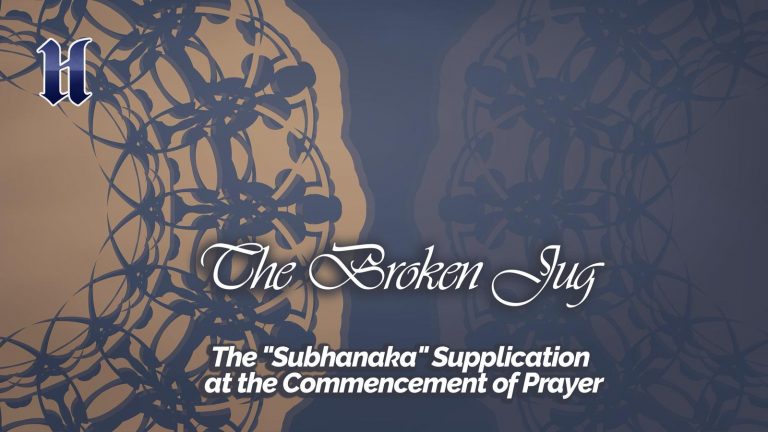Question: The works of Risale-i Nur relate three types of patience.1 What kind of a relationship exists among them?
Answer: Similar to the great personages who guided people to the horizons of the heart and spirit, Bediüzzaman also refers to these three types of patience. We can say that there exists a serious relationship among them. Let us try to see this relationship with its basic lines.
Steady Worship Protects a Person from Falling to Sin
Fulfilling acts of worship in an immaculate fashion and, in particular, seeking constancy in this respect take serious patience, as it is difficult for a person to fulfill certain tasks from the beginning to end without faltering at all. It is thanks to patience that a person can attain God Almighty’s love. The Messenger of God, blessings and peace be upon him, once stated:
“The most beloved of deeds to God are the ones that are continuous even if they are little.”2 Let alone the supererogatory (nafila) acts of worship, even a person’s ceaseless observation of the obligatory acts of worship is very valuable in terms of fulfilling thorough servitude to God. In this respect, through patience—in the sense of steady worship—a person gains a very different value in the sight of God. Bediüzzaman draws attention to this with his words, “It elevates a person to the level of being a beloved servant of God. If you have fulfilled your prayers, fasts, almsgiving, and other acts of worship with no neglect since puberty—if we include the phase of orientation, then since 7 or 8 years of age—and continue until the moment you die, it means that you have fulfilled a very serious servitude for God in terms of gaining His good pleasure. If a person has become steady at worship to this degree, then his or her prayers, fasting, alms, and the like will, in a way, serve as a shield against transgressions and protect that person from falling into the web of great sins. For example, we know that harmful drinks are widely consumed in our time, particularly on the pretext of certain nights, that some people even go into a coma for this reason, and consequently those people are enslaved by evil feelings and passions to the degree of darkening their life of this world and the Hereafter. Think about a man who observes worship in immaculate fashion, who goes to the mosque as usual on such a night as well. Even though he receives pressure from people around him to indulge in alcohol, it is not conceivable for him to commit such a sinful act after coming out of the mosque, as it is clearly forbidden in Islam. The prayers, remembrance, and recitations he observes serve as a shield for him by God’s grace and help, and enable him to proceed through the journey of life safely, without having any hindrance.
It is possible to say that just as water that flows continuously wears away marble, the steadfastness of such a person at worship will similarly wear away the inclinations of the carnal soul for sins.
Worship Maintains the Straight Path in Thinking
Scrupulous observance of worship also helps a person take the proper attitude in the face of troubles and misfortunes, because worship and devotions always remind a person of gaining God’s good pleasure, of Divine decree and destiny. Such a believer has a wisdom-oriented perspective on trials that befall him or her, does not become rebellious, and does not criticize Divine destiny. On the contrary, for already having a strong relation with God, such a believer resigns to Divine destiny, thinking that “all of these are sent to test me by the One before whom I stand obediently at prayer.” Even at the times when others are shaken or even toppled over, such a believer is constantly on the horizons of being well-pleased with Him and His treatment of His servants as stated in,
Loveable to me what comes from You;
Either a robe or a shroud,
Either a fresh rose or a thorn.
Your grace and trials, both are welcome.
Turning to God, the one rightfully deserving to be worshipped and deservedly sought after, is like a shelter against sins and leads people to wisdom-oriented thinking in the face of troubles and misfortunes. Taking all of these into consideration, we can comfortably say that there is a serious relationship between the different types of patience.
On the other hand, it is possible to talk about a ranking between these types of patience with respect to their difficulty or ease, because it is very difficult for a person to show a performance of immaculate worship to God for a lifetime. It will be easier for a person who has overcome this difficulty to overcome other types of patience. If a river appears before someone who has successfully crossed a sea of blood, that person can cross the river far more easily with God’s permission and grace. Thus, the types of patience already shown in a way facilitate and provide support against future situations that will require patience.
Question: Are there other types of patience in addition to these three?
There are other types of patience as stated by Bediüzzaman. For example, it is very important to show patience against the maddening quality of time concerning issues that require a certain time period to pass. For example, you may be wishing that everybody believes, wishing to let waves of love spread among all people, to let peace prevail everywhere, everybody to become friends, and to take all racist considerations underfoot, etc., and breathlessly strive for this end… But it needs to be known that raising a new generation and taking the issue from the grassroots are necessary in order to realize all of these good things. Undoubtedly, realizing this will take at least a quarter, and sometimes even half, a century. And this is not something impatient souls can endure. As a poet states, “Those who act in haste trip over their gown; those who carefully walk reach the destination.”
In addition, those who step forward for government and take hold of the dynamic power often believe that they can change the hue, shape, pattern, and accent of the society all of a sudden and attempt to redesign the society accordingly. However, if you do not take the issue from the grassroots, do not respect people’s freewill, but act hastily without showing the patience required for forming a beautiful environment, you will make time and events turn against you unawares. Even with respect to things that you believe you have done successfully, any building you have constructed without a base will collapse on you, suddenly, because hastiness and top-down impositions contradict the natural processes of human perfection and social development. In this respect, the volunteers who are trying to build an atmosphere of peace and love for their own society, and even for the entire humanity, must be ready for this: you may never see certain beautiful developments, although you strived for a lifetime in this respect. Seeing those days may be possible for the generations to follow. Indeed, this should be an essential principle for volunteers to follow for a lifetime: “Fulfilling our duty and not attempting to meddle in what Divine wisdom realizes.”
A fifth type of patience is patience toward the attractions of this world, even if they seem to be within the lawful sphere. When the world targets our eyes with its dazzling rays, being able to take a resolute and upright stance against it is among the most difficult types of patience. Bediüzzaman tells the story of a pious man who whenever he wished to eat some delicacy saved the money until he had saved enough to build a mosque with it.
A further degree of patience than those above is shown by those nearest to God Almighty (muqarrabin). In spite of their yearning for reuniting with their Lord of infinite beauty and perfection and His noble Messenger, they show patience to continue living in this world until the moment they walk to the horizon of their soul and depart with God’s permission. Jalaluddin Rumi, one of the important representatives of this horizon, says,
I want a bosom, that is torn by separation;
So that I may, tell the pain of lamentation.
That is, a person needs to feel suffering first so that he can understand the sufferer. You cannot tell your suffering to those who do not understand what suffering is. The great master Rumi is saying that he is essentially the child of a lost Paradise, a poor one who came from God and was thrown here. Thus, he constantly burns with the fire of his yearning. Until the moment he died, Rumi spoke of reunion. But even though he burned with a longing for reunion, he never voiced a demand such as, “My God, take my soul as soon as possible, so that I can reunite with You.” Instead, he gave his willpower its due and showed patience against his yearning for reunion, because He, glorified and exalted is He, is the One Who sends us to this world. Obedience to His Command has superiority over mannerliness, even over our love for Him. Even if ecstatic love drives a person crazy, demanding to pass to the next life, without His commanding us to come is disrespect toward Him. Given that He is the One Who rendered us His officers in this realm, it is Him Who will discharge us from our duty in this world. What falls to us then is to be patient and staying here until He issues this leave. This is the type of patience shown in spite of the intense love and yearning felt toward Him. It is an issue that only concerns very great personages who truly believed, who deepened in knowledge of God further than believing, and with this deepening took wing from knowledge to love, then from love to ardent yearning for God—well beyond people like us.
This text is the translation of “Sabır Çeşitleri Arasındaki Münasebet.”
1. Namely, patience in the sense of resisting against sins, enduring misfortunes, and insistence on worshipping God. See Nursi, The Letters, p. 300.
2. Sahih al-Bukhari, Riqaq, 18; Sahih Muslim, Salatu’l-Musafirun, 216–218.






